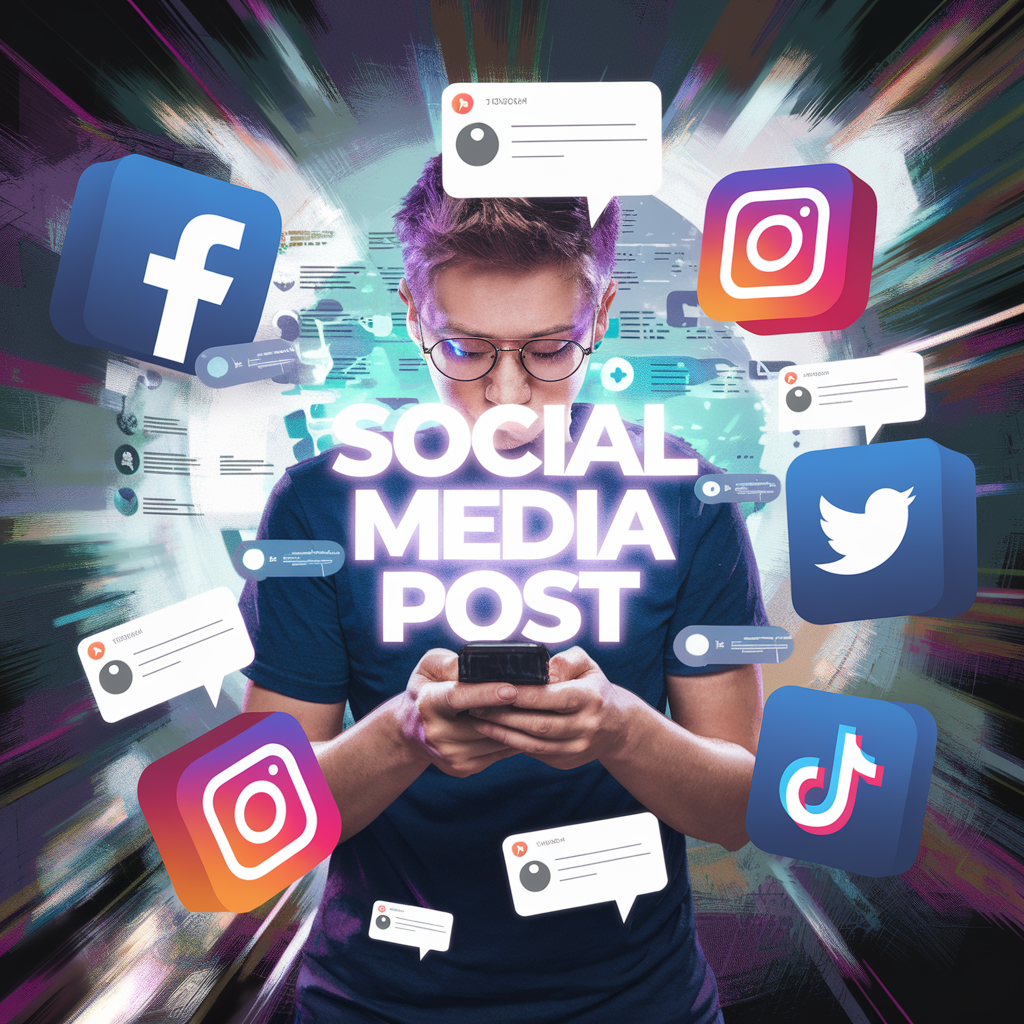How Social Media Is Affecting Our Daily Life Routine

Strong 8k brings an ultra-HD IPTV experience to your living room and your pocket.
In today’s fast-paced, technology-driven world, social media has become an integral part of daily life. From checking Instagram over morning coffee to watching TikTok videos late at night, social media has redefined how we communicate, stay informed, and even entertain ourselves. But as much as social media post enhances our connectedness, it also brings several challenges that affect our daily routines in ways we may not always realize. While it has revolutionized communication and provided new opportunities for engagement, its influence on our habits and well-being has far-reaching consequences—both positive and negative.
The Positive Side of Social Media
Connectivity and Relationships:
One of the most significant advantages of social media is its ability to keep people connected, regardless of geographic location. In today’s globalized world, social media allows us to maintain relationships with family, friends, and colleagues even when they are miles away. Whether it’s through video calls, instant messaging, or social media updates, platforms such as Facebook, WhatsApp, and Instagram ensure we remain involved in each other’s lives, making long-distance relationships more manageable.
Learning and Awareness:
Social media has transformed how we access information and broaden our knowledge base. Platforms like LinkedIn and YouTube provide users with countless opportunities to learn new skills and advance their professional careers. Many users engage in online courses, participate in webinars, or follow thought leaders in their fields to stay updated with industry trends. Additionally, social media has become an important tool in raising awareness about social and political issues, helping users become more socially conscious and fostering global discussions on pressing matters.
Business Opportunities:
The rise of social media has opened up new avenues for entrepreneurship and business growth. Small businesses and start-ups have gained access to a global marketplace that would have been impossible to reach through traditional advertising methods. Social media platforms like Facebook, Instagram, and Twitter offer businesses a low-cost way to market their products, engage with customers, and create brand awareness. Moreover, these platforms also enable networking opportunities, connecting entrepreneurs with potential clients, investors, and collaborators worldwide.
Entertainment:
One of the most obvious and enjoyable aspects of social media is its entertainment value. Whether it's viral memes, funny videos, or creative challenges, platforms like TikTok, Instagram, and YouTube provide endless hours of entertainment. These platforms are often used to escape the stresses of daily life, offering light-hearted distractions that help break up the monotony of everyday routines. The easy accessibility of this content ensures that users can enjoy entertainment wherever they go, making social media a versatile tool for unwinding.
The Negative Side of Social Media
Disrupted Daily Schedules:
While social media offers numerous benefits, its overuse can disrupt our daily routines. The constant availability of new content and notifications often leads people to spend hours on their devices. This excessive screen time can result in lost sleep, reduced productivity, and less quality time spent with family and friends. Many individuals find themselves checking their phones at every opportunity, leading to unproductive periods throughout the day and even well into the night.
Mental Health Impacts:
Another significant drawback of social media is its effect on mental health. The curated nature of social media content often leads to unrealistic comparisons with others’ seemingly perfect lives. This can contribute to feelings of inadequacy, anxiety, depression, and low self-esteem. Constant exposure to idealized lifestyles, coupled with the pressure to present a similar image of ourselves, has a profound impact on how we view our lives. For some, the need for validation through likes and comments only exacerbates this issue.
Addiction:
The addictive nature of social media is a growing concern. Social media platforms are designed to capture and maintain user attention through endless scrolling, notifications, and rewarding interactions such as likes, shares, and comments. This constant feedback loop leads to social media addiction, where users feel compelled to check their phones continuously throughout the day, even when it interferes with their work, relationships, or personal well-being.
Spread of Misinformation:
The rapid spread of misinformation is another downside of social media. The ability for anyone to post and share content means that fake news, rumors, and conspiracy theories can go viral quickly. This uncontrolled spread of inaccurate information can influence public opinion, distort perceptions, and even contribute to societal unrest. Social media platforms have struggled to effectively manage this issue, making it difficult for users to discern fact from fiction.
How to Balance Social Media Use
Set Time Limits:
To mitigate the negative effects of social media, it’s essential to establish boundaries. Using apps that track and limit social media usage can help ensure we don’t spend excessive time scrolling. Setting specific times for social media use can help maintain balance and prevent mindless browsing.
Prioritize Offline Activities:
It’s important to make time for offline activities such as hobbies, exercise, or face-to-face interactions with friends and family. By engaging in non-digital activities, we create a healthier balance between our online and offline worlds.
Curate Your Feed:
Take control of your social media experience by curating the content you see. Follow accounts that promote positivity, education, and personal growth, and unfollow those that spread negativity or contribute to stress. This helps ensure your feed remains a source of inspiration rather than anxiety.
Practice Digital Detox:
Taking regular breaks from social media can do wonders for our mental well-being. Whether it's a few hours or an entire weekend, disconnecting from the digital world allows us to reset, recharge, and focus on real-world experiences without distractions.
Conclusion
Social media is a powerful tool that shapes our daily lives in numerous ways. It connects us, offers entertainment, and opens up new opportunities. However, its overuse can disrupt our routines, harm our mental health, and contribute to addictive behaviors. By adopting mindful practices and setting boundaries, we can enjoy the benefits of social media without allowing it to dominate our lives. The key to managing social media effectively lies in moderation and intentional use—making it an asset rather than a hindrance to our overall well-being.
Note: IndiBlogHub features both user-submitted and editorial content. We do not verify third-party contributions. Read our Disclaimer and Privacy Policyfor details.


